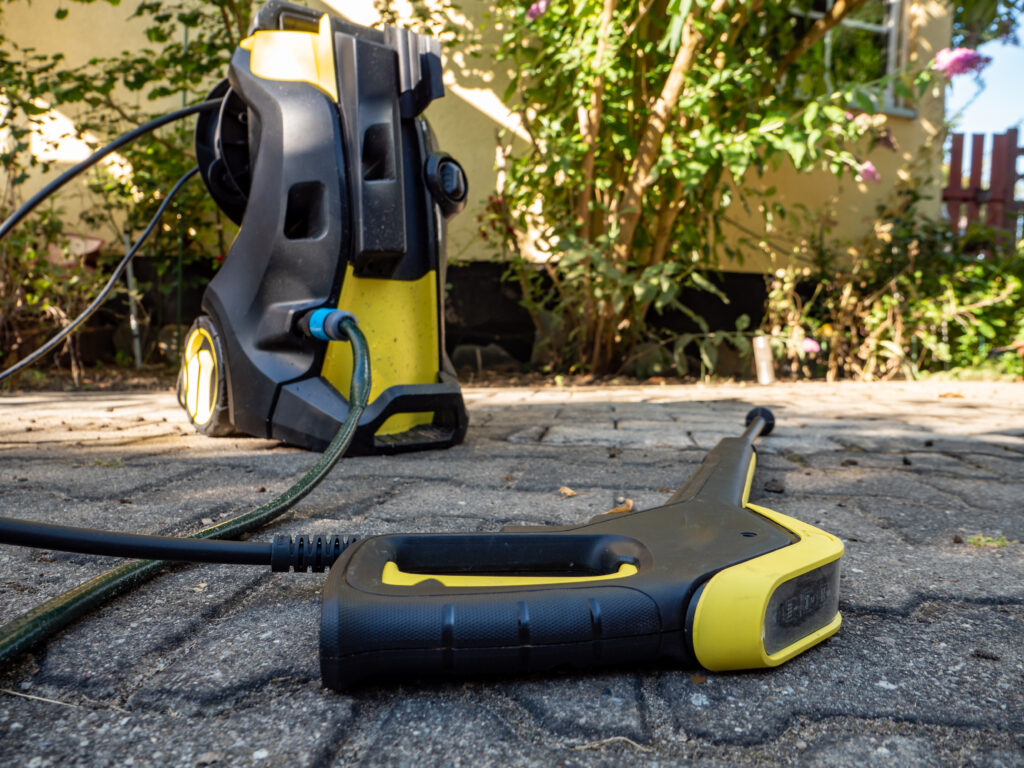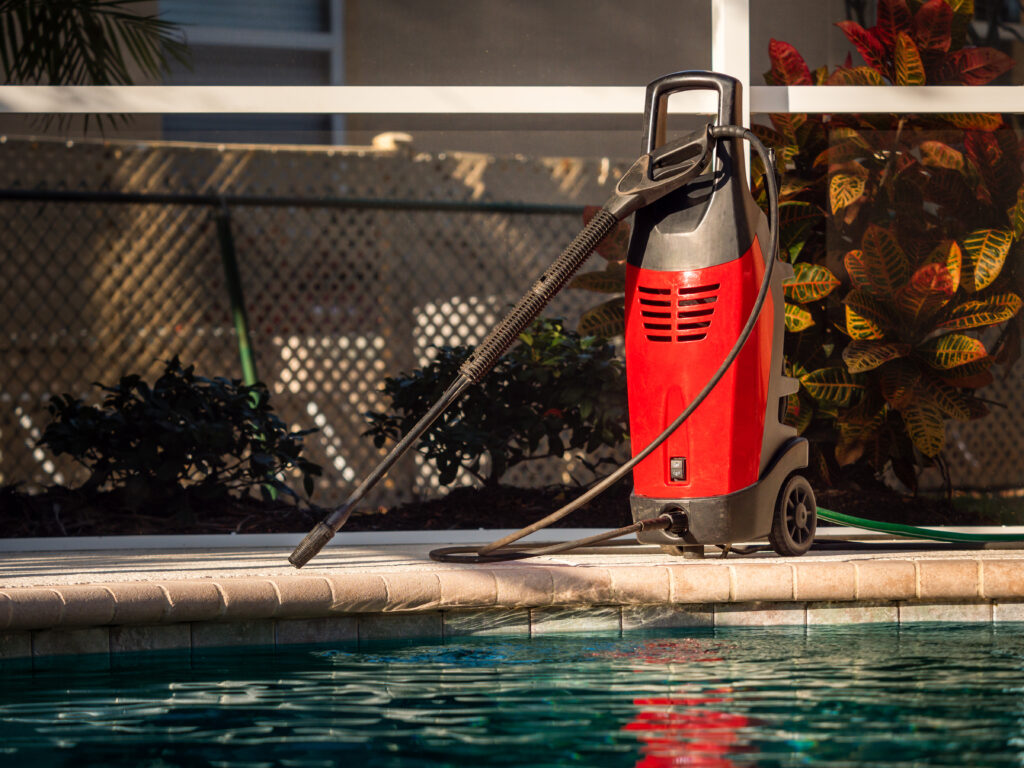
How To Choose a Pressure Washer
Do you know what is a pressure washer and how to choose between gas and electric? A pressure washer can be a very beneficial tool for preserving the beauty and integrity of your home or vehicle. You can keep your car immaculate, your walks moss-free, and your house siding looking fantastic with the suitable pressure washer. Additionally, it can work wonders for your driveway.
However, how can you determine which pressure washer best fit your needs? How powerful a pressure washer do you require? Which is better, a gas or an electric pressure washer? It will address these and other questions in this handbook. Continue reading to learn everything you need to know about selecting the ideal pressure washer for your needs.
How To Choose a Pressure Washer
Consider the Following Measurements
What should you look for when comparing pressure washers in terms of power? How much pressure is sufficient, and how much is excessive? How do you tell them apart? As with other pieces of equipment, pressure washers may be objectively evaluated through performance measurements.
When grading pressure washers, it’s essential to understand three distinct measurements to take into account. Once you’ve got your head around these phrases and what they mean, you’ll be able to select the best pressure washer for your required task.
PSI (pounds per square inch)
GP (gallons per minute)
CU (cleaning units)
When determining the amount of pressure that a pressure washer can generate, you must consider how many pounds of force it can generate per square inch of water (PSI). When considering how much water a pressure washer can use, it’s necessary to examine how many gallons of water it consumes every minute (GPM).
Finally, consider the cleaning units that a pressure washer may generate. CUs are used to rate the PSI and GPM values in combination. Consider this: a pressure washer can have the highest PSI rating globally and still clean poorly if the GPM is less than the PSI rating.
Select the GPM of Your Pressure Washer
What is a good rating in terms of gallons per minute? Do you require a high or a low GPM?
Fortunately, there is a standard GPM that you can search for. However, the most straightforward approach to comprehending GPM is to consider what it accomplishes when paired with the PSI of the pressure washer unit.
Pressure washers typically have a GPM rating of between one and four (gallons). It will cover the majority of house or residential applications. Additionally, you will see this rating on electric and gas pressure washers. Unless you have heavy-duty commercial requirements, you will not require a higher GPM rate.
This GPM rating will also take into account a variation in PSI. With a flow rate of one to four gallons per minute, pressure washers typically operate at a PSI of 500 to 4,200. It provides you with a selection of mild to medium-duty pressure washers.
 Select the Power Range of Your Pressure Washer
Select the Power Range of Your Pressure Washer
Consider pressure washers in three power categories. These categories are mainly concerned with the cleaning force desired from the pressure washer. Each category’s ranges of GPM, PSI, and CU values correspond to the respective level.
The three stages of cleaning that pressure washers are capable of achieving are as follows:
- Light
- Medium
- Heavy
It’s simple to determine which power category you require based on the type of cleaning you intend to perform. If your purpose in using a pressure washer is for household, a light pressure washer will suffice. Medium-sized pressure washers are ideal for individuals who use pressure washers more frequently for more significant assignments or occasional commercial work.
Generally, only commercial or professional users require a pressure washer capable of performing heavy-duty cleaning. These pressure washers are built to last, even with continual daily use.
Explanation of Pressure Washer Power Categories
The following summarizes the ranges within the three pressure washer categories:
- Light pressure washers have a PSI of 500–4,000 and a GPM of one–four, resulting in a total CU of 1,560–16,000.
- Medium range pressure washers have a PSI of 1,000 to 4,200 and a GPM of one to four, resulting in a total CU of 2,400 to 16,800.
- Heavy-duty pressure washers have a PSI of 1,000–7,000 and a GPM of one–ten, resulting in a total CU of 2,500–30,000.
Determine the CU
As you can see, the ranges of the various metrics overlap somewhat. The PSI values for medium and heavy-duty pressure washers are identical, while the PSI ranges for light and medium pressure washers are slightly different.
Similarly, the GPM range for light and medium pressure washers remains constant. And while the range of GPM is significantly greater for heavy-duty pressure washers, the baseline for all three remains the same.
In many respects, the CU provides a complete picture when examining pressure washers, which becomes evident once you understand how this parameter is calculated. Multiply the PSI by the GPM to obtain the CU. Thus, if your PSI is 700 and your GPM is 2, your CU is 1,400.
As a result, the CU often has a broader range, particularly between medium and heavy-duty pressure washers. There are numerous variables between PSI and GPM that might alter the CU of a pressure washer.
Choose a Pressure Washer Powered by Electricity or Gas
A critical point to address when purchasing a pressure washer is whether to get an electric or gas-powered pressure washer. This selection is just as essential as the rating above when determining the best pressure washer for your needs.
The primary truth is that you can find high-quality pressure washers in either the electric or gas-powered categories capable of handling practically any domestic cleaning task. As a result, your choice comes down to your unique requirements. The features and characteristics you desire will assist you in establishing your priorities and making a selection.
Consider the following categories while assessing your requirements:
- Generally, the cleaning that you will use for your pressure washer.
- How far from a power source your pressure washer must be
- Your ability to transport large pieces of equipment
- How frequently you should generally use your pressure washer
Electric Pressure Washing Machines
Electric pressure washers offer a plethora of advantages. You can get an electric pressure washer that delivers four gallons per minute at 5,000 pounds per square inch. The majority of electric washers will operate at a low to medium load, making them more than adequate for home use while still capable of handling some more challenging tasks.
The noise level is one of the primary advantages of an electric pressure washer. They can provide the necessary power without emitting the noise associated with a gas engine. They are often less expensive, and because they do not use gas, they have lower maintenance and upkeep costs than gas-powered pressure washers.
However, electric pressure washers can have some drawbacks.
- Because you must hook the power cords into a power source, electric pressure washers are not as portable as gas-powered pressure washers.
- Using an electric pressure washer with an extension cord is not suggested.
- Electric pressure washers, on average, do not last as long as their gas-powered counterparts.
If you have a large property, the reach of your pressure washer is essential to consider. Additionally, this may be acceptable if you want to use your pressure washer once a year for spring cleaning. However, if you’re going to use it frequently, its durability may make a significant difference in your decision.
 Pressure Washers Powered by Gas
Pressure Washers Powered by Gas
On the other hand, gas pressure washers often offer the following advantages:
- They are stronger and more durable than electric pressure washers.
- There is no need to attach a power cord to an outlet because they are self-contained.
- They are capable of attaining the highest PSI and GPM values.
Due to the high durability of gas-powered pressure washers, they are better suitable for those who use them on a professional or even semi-professional level. Additionally, the most incredible PSI at GPM is only possible with gas-powered equipment, and they are the only option for heavy-duty commercial cleaning.
One significant disadvantage of using gas pressure washers is their noise level. Additionally, while they are more portable, they are heavier due to the motor and gas tank that they contain. They require more fuel or a unique gas mixture to operate and periodic oil changes and engine maintenance.
If you’re still unsure, keep in mind that regular maintenance may cost less in the long term than buying a new computer. There are several considerations to consider when deciding which choice is best for you, including the following:
- Budget
- Convenience of use
- Portability
- Utilization frequency
- Cleaning depth
- Budget
Budget
It is entirely natural to purchase equipment on a budget. You can still obtain a high-quality pressure washer even if you go for a less expensive one. Even when all of the factors that contribute to the superiority or superiority of one type of unit over another are considered, many economic units are equally as effective for particular purposes.
If you’re looking for an affordable pressure washer, you’re probably looking for an electric model. Gas-powered pressure washers start at roughly $400 and easily exceed $1,000. On the other hand, electric pressure washers often cost between $80 and $300.
Of course, there are also electric pressure washers comparable to gas-powered pressure washers in terms of price and performance. How do you pick between electric and gas-powered pressure washers if cost is not considered?
Utilization Ease
An electric pressure washer is undoubtedly the best choice if you are looking for a simple machine to operate. These are lightweight, portable, and simple to put up and turn on.
A gas-powered unit requires additional steps and maintenance. Additionally, the gas-powered device is heavier, so it may need more work to maneuver down paths and planted areas in most residential settings.
Portability
As previously stated, both units are movable. The preceding section discussed their portability. Now you must evaluate the distance that your pressure washer must go. If your home has frequent access to outdoor power outlets, owning an electric pressure washer should be easy.
However, if electrical outlets are few around the house or if you have a large amount of property to clean with your unit, a gas-powered pressure washer is a need. The ease of use of the electric team is irrelevant if you cannot use it due to a lack of electricity.
Usage Frequency
This element can work in both directions. It relies on your approach to resolving issues when using your pressure washer.
- Because I use it frequently, I want to be able to use it easily.
- Because I use it frequently, I want it to endure my misuse for an extended period.
Regrettably, you are unlikely to have a single pressure washer capable of performing both functions in this case. Due to its ease of use, the electric pressure washer will regularly appeal to those who desire less difficulty while interacting with a particular instrument.
This individual is not opposed to replacing it more frequently for convenience.
If it irritates you to replace a piece of equipment more frequently than you had purchased a different model, the gas-powered pressure washer is probably for you due to the absence of plastic components.
 Cleaning Depth
Cleaning Depth
Finally, there is the question of cleaning results. Is one sort of unit more effective at cleaning than the other? Bear in mind that both teams are equivalent at a moderate to medium degree of cleaning (the level of cleaning that most homes want from a pressure washer).
Nonetheless, there may be a case for owning a gas-powered pressure washer capable of higher PSI and GPM if you’ve recently inherited an older home that needs extensive cleaning. A gas-powered unit may be the best option.
However, you may own a newer home in excellent condition and wish to maintain it. You can clean an electric device quite well during an annual cleaning. Additionally, you may use the same electric machine to detail your car. In this instance, either unit is acceptable.
Pressure Washer for Residential Use – Gas or Electric
Once again, this decision is based on your intended use of the pressure washer. Both types of devices are typically capable of performing the tasks you require around your home, whether pressure washing siding, windows, or walkways.
Pressure Washer, Gas or Electric, for Car Detailing
Each sort of power washer can detail your car without causing any damage to it. Bear in mind that the safest way to describe your automobile with a pressure washer is to use a lower setting on the pressure washer of your choice. It ensures that the powerful spray does not damage the paint.
When polishing your car, using the maximum feasible power unit can be harmful. Scraping the paint off the hood while trying to remove that terrible bug filth is not something you want to do. Ranging from 1,200 and 1,900 pounds per square inch and one to twelve gallons per minute is the recommended operating ranges for the equipment you’ll need.
If your automobile is primarily used for your pressure washer, an electric machine is the best option. With an electric device, you can quickly achieve the cleaning required, and you won’t have to worry about a gas-powered unit creating too much power.
For this type of project, you cannot beat the simplicity of usage. You can plug it inside your garage, wheel it to your car, or even put it at your garage door with an electric unit. Another significant advantage of an electric team is that it eliminates the risk of carbon monoxide poisoning if it is left in your garage while in use.









No Comments
Sorry, the comment form is closed at this time.